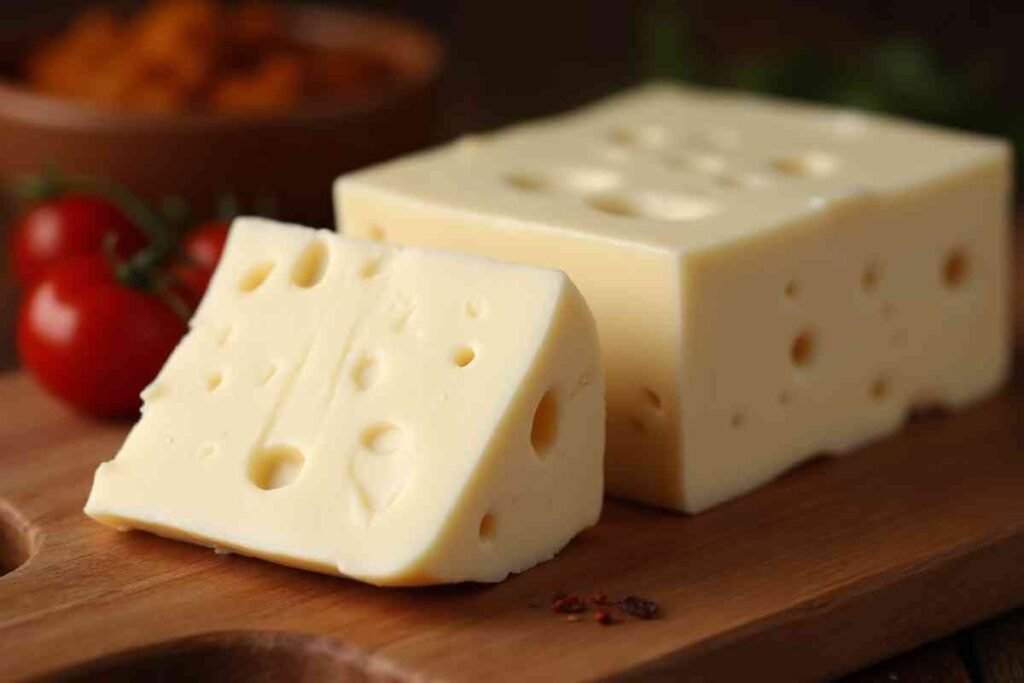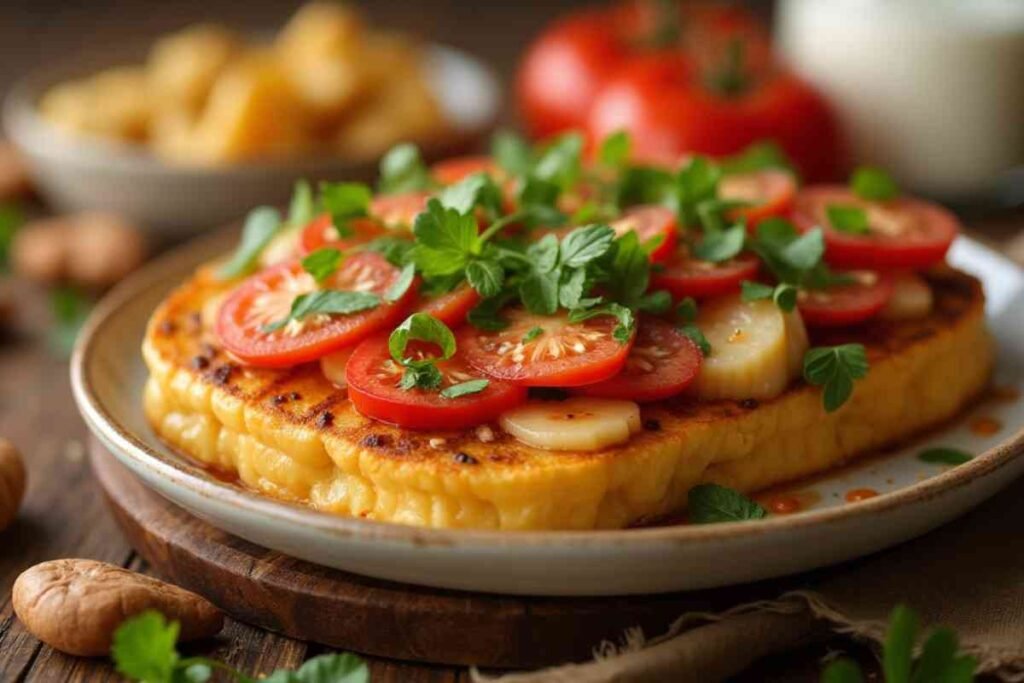200 gm paneer protein is a rich source of high quality nutrition that strengthens muscles and supports bone health.
Packed with protein calcium and healthy fats it fuels energy levels aids recovery and boosts overall fitness.
Explore how adding 200 gm paneer protein to your daily diet can improve strength wellness and long term health read the full guide now!
What is Paneer?

Paneer is a type of fresh Indian cheese that has been a part of the subcontinent’s cuisine for centuries. Made by curdling milk with lemon juice or vinegar it has a soft yet firm texture that makes it incredibly versatile in cooking.
Unlike aged cheeses paneer does not melt which makes it perfect for curries stir fries grills and even desserts. Rich in protein calcium and healthy fats paneer stands out as one of the most important vegetarian protein sources. For those who do not consume meat paneer fills the protein gap in a balanced diet.
Nutritional Profile of 200 gm Paneer Protein
When we talk about 200 gm paneer protein we are not just focusing on protein alone but also the complete nutritional package. On average 200 gm of paneer contains approximately 28 30 grams of protein which is substantial for a single serving.
Along with protein this serving provides around 320 350 calories 25 28 grams of fat 4 6 grams of carbohydrates 600 700 mg of calcium and a good amount of phosphorus vitamin B12 and other micronutrients. These values can vary slightly depending on whether the paneer is made from full cream milk or toned milk.
Why 200 gm Paneer Protein Matters?
Eating 200 gm paneer protein matters because it provides a rich source of high quality protein that supports muscle growth and overall strength. It also helps boost energy maintain satiety and improve daily nutrition for a healthier lifestyle.
Paneer for Muscle Building
One of the main reasons fitness enthusiasts prefer 200 gm paneer protein is because of its role in muscle growth. Protein is essential for repairing and building muscles after workouts.
Since paneer contains casein protein which is slowly digested it provides a sustained release of amino acids to the muscles making it especially useful for people engaged in strength training and bodybuilding.
Paneer for Weight Management
If you are trying to lose weight or manage your calorie intake paneer can be a smart choice. The protein and fat in 200 gm paneer keep you feeling full for longer reducing unnecessary cravings. At the same time its low carbohydrate content makes it suitable for low-carb and keto diets.
Paneer for Bone Health
Calcium is one of the most important nutrients for maintaining healthy bones and paneer is loaded with it. Regularly consuming 200 gm paneer protein ensures you meet a significant portion of your daily calcium needs which is crucial for children adults and the elderly alike.
200 gm Paneer Protein and Different Diets
200 gm Paneer Protein fits well into different diets whether you follow vegetarian keto or high protein plans. Its rich nutrition makes it a flexible choice for weight loss muscle gain and balanced healthy living.
Paneer in a Vegetarian Diet
For vegetarians, getting sufficient protein is often a challenge. This is where 200 gm paneer protein plays a vital role.
Unlike plant proteins which may lack some essential amino acids paneer provides a more complete protein source. Including it in daily meals ensures vegetarians do not miss out on vital nutrients that are typically obtained from meat.
Paneer in a Keto Diet
Paneer is a favorite among people following the ketogenic lifestyle. Its high fat and low carbohydrate composition make it an ideal ingredient for keto friendly meals. A serving of 200 gm paneer protein offers the right balance of macros without kicking you out of ketosis.
Paneer in a High Protein Diet
Athletes bodybuilders and people recovering from illness often need higher amounts of protein. Paneer serves as an excellent option because it is versatile easily digestible and nutrient rich. Having 200 gm paneer protein as part of your daily intake helps you achieve your protein targets more comfortably.
Health Benefits of 200 gm Paneer Protein
Eating 200 gm paneer protein provides your body with a rich source of essential amino acids and calcium that support strong muscles and healthy bones.
It also boosts energy improves digestion and keeps you feeling fuller for longer making it a great choice for daily nutrition.
Improves Muscle Recovery
After exercise the body needs protein to repair damaged muscle fibers. Paneer provides a steady release of protein making it an excellent post-workout food.
Supports Weight Loss
The high protein content in 200 gm paneer protein helps reduce hunger pangs making it easier to stay within your calorie goals. Combined with a healthy lifestyle paneer supports fat loss while preserving lean muscle mass.
Strengthens Bones and Teeth
Paneer is rich in calcium and phosphorus, both of which are essential for strong bones and teeth. Regular consumption can help prevent osteoporosis and other bone related issues.
Boosts Immunity
Paneer contains important vitamins like B12 which play a role in maintaining nerve health and improving immunity. For vegetarians paneer is one of the best sources of vitamin B12.
Enhances Skin and Hair
The vitamins proteins and minerals in paneer contribute to healthier skin and stronger hair, giving you a youthful glow naturally.
Calories in 200 gm Paneer Protein
Calorie-conscious eaters often worry about whether paneer will make them gain weight. The reality is that 200 gm of paneer provides about 320 350 calories depending on the milk source.
This calorie count is moderate considering the nutritional richness paneer provides. When balanced with other healthy foods and physical activity these calories work to fuel your body rather than cause fat storage.
Paneer vs Other Protein Sources
When compared to meat eggs or legumes paneer offers several advantages. It is vegetarian friendly affordable widely available and easy to digest.
Unlike some plant based proteins paneer provides better amino acid balance and does not cause digestive discomfort.
Compared to chicken or fish paneer might have slightly fewer grams of protein per serving but its overall nutrient profile combined with its accessibility makes it one of the best choices for daily consumption.
Common Myths About Paneer
Many people avoid paneer due to myths that it is fattening or difficult to digest. In reality paneer contains healthy fats that support overall health when eaten in moderation.
It is also easier to digest compared to other dairy products and it is completely vegetarian making it suitable for all types of diets.
How to Include 200 gm Paneer Protein in Daily Meals?
Paneer is versatile enough to be included in breakfast lunch dinner or even snacks. You can make paneer parathas for breakfast paneer bhurji or paneer salad for lunch and dishes like palak paneer or paneer tikka for dinner. For those on strict diets grilled paneer cubes or paneer smoothies can provide a quick protein boost.
Paneer for Fitness Enthusiasts
For people serious about fitness 200 gm paneer protein can be timed strategically. Eating paneer after a workout ensures your muscles get the protein they need to recover.
Having paneer before bed is also beneficial since casein protein digests slowly providing a steady release of amino acids throughout the night.
Side Effects and Things to Keep in Mind

While paneer is generally safe and healthy, moderation is key. Eating excessive amounts may lead to digestive issues for people who are lactose intolerant.
It is also important to balance paneer with other protein sources to avoid nutrient imbalances. Choosing fresh paneer over processed or fried options ensures you get the maximum health benefits.
Homemade vs Store Bought Paneer
Homemade paneer is often fresher and healthier since you can control the quality of milk and avoid preservatives.
Store bought paneer while convenient may contain additives and sometimes lacks the same freshness. For maximum nutrition it is best to make paneer at home using full cream milk.
Just like Facebook Website Traffic Useviral strategies help boost your online growth our guide on 200 gm Paneer Protein shows how the right nutrition fuels your body’s strength and fitness for long term success.
Conclusion
200 gm paneer protein is more than just a food choice it is a complete package of nutrition strength and wellness.Rich in protein calcium and essential nutrients it supports muscle growth boosts energy and strengthens bones for long term health.
Whether you are aiming for weight management building lean muscle or simply maintaining a balanced lifestyle paneer fits perfectly into all types of diets.
By making 200 gm paneer protein a regular part of your meals you invest in better fitness stronger immunity and overall well-being that lasts a lifetime.
FAQs
What is paneer and why is it popular in Indian diets?
Paneer is a fresh Indian cheese made by curdling milk with lemon juice or vinegar. It is popular because it is protein-rich, versatile in cooking, and a vital vegetarian protein source.
How much protein is in 200 gm paneer?
On average, 200 gm of paneer provides around 28–30 grams of protein. This makes it an excellent choice for muscle building, recovery, and overall nutrition.
Is 200 gm paneer good for weight loss?
Yes, paneer helps in weight loss because its high protein and fat content keep you full for longer. It also has very low carbohydrates, making it suitable for low-carb and keto diets.
Can 200 gm paneer strengthen bones?
Absolutely, paneer is rich in calcium and phosphorus which are essential for bone strength. Regular consumption supports bone health and reduces the risk of osteoporosis.
Is paneer better than other protein sources?
Paneer may have slightly less protein compared to chicken or fish, but it is vegetarian-friendly, easily digestible, and provides a balanced amino acid profile. This makes it an excellent choice for daily diets.
Can paneer be eaten daily?
Yes, 200 gm paneer can be safely consumed daily if eaten in moderation. It provides balanced nutrition but should be combined with other protein sources for variety.
Is homemade paneer healthier than store-bought paneer?
Homemade paneer is usually fresher, free from preservatives, and made from high-quality milk. Store-bought paneer is convenient but may lack the same freshness and nutritional value.
Are there any side effects of eating too much paneer?
Overeating paneer may cause digestive issues, especially for people who are lactose intolerant. Moderation and choosing fresh paneer are key to avoiding such problems.